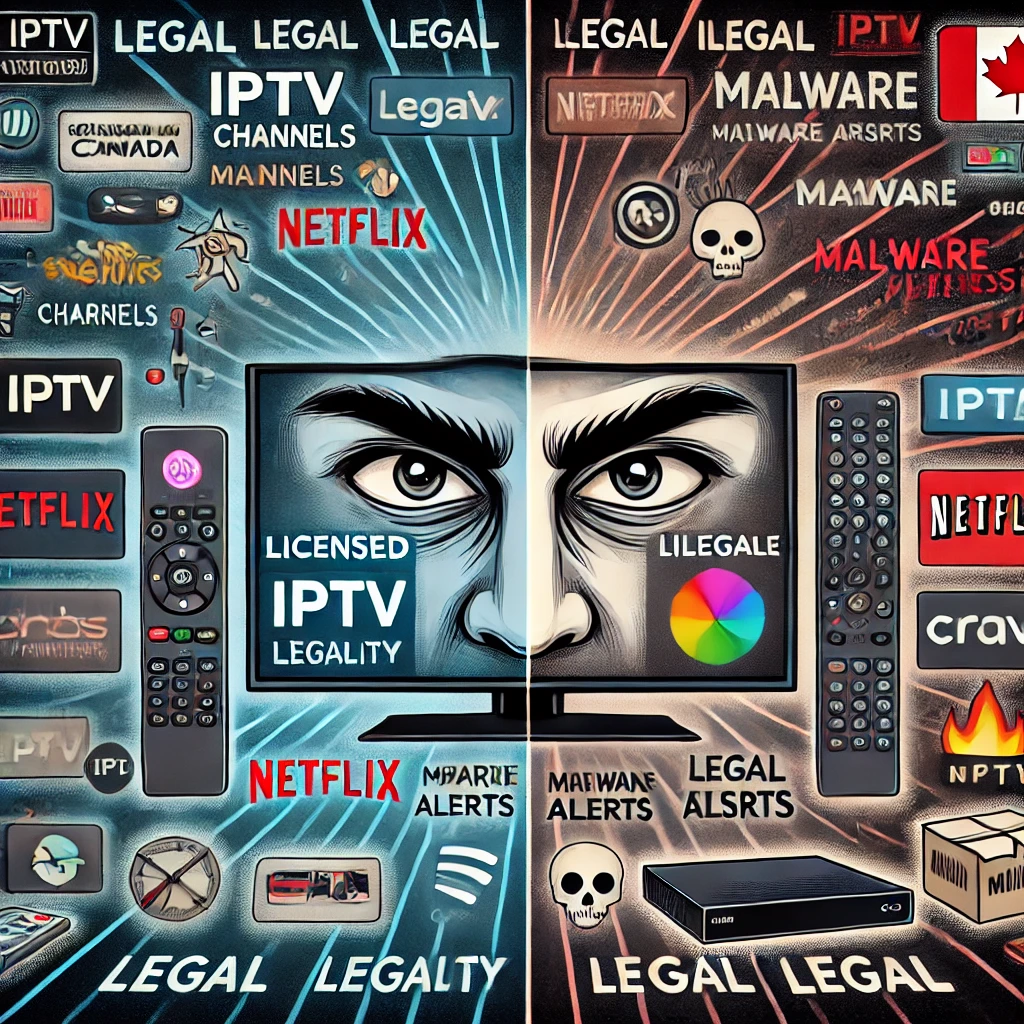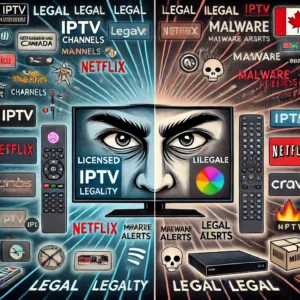Is IPTV Legal in Canada?
IPTV (Internet Protocol Television) is gaining popularity across Canada as it allows users to stream live television and on-demand content through the internet. But the question arises: is IPTV legal in Canada? The answer depends on the type of IPTV service you are using. This article will explain the differences between legal and illegal IPTV services in Canada, what Canadian law says about IPTV, and how to avoid the risks of using unlicensed services.
What is IPTV and Is IPTV Legal in Canada?
IPTV, which stands for Internet Protocol Television, delivers TV content over the internet instead of through traditional cable or satellite services. But is IPTV legal in Canada? The legality of IPTV largely depends on whether the provider has proper licensing for the content being broadcast.
Legal IPTV Services in Canada
Is IPTV legal in Canada? Yes, when it is offered by licensed providers. Legal IPTV services in Canada comply with broadcasting regulations set by the Canadian Radio-television and Telecommunications Commission (CRTC) and Canadian copyright laws. These services obtain the necessary licenses to broadcast and distribute TV shows, movies, and live channels legally.
Common examples of legal IPTV services in Canada include:
- Bell Fibe TV
- Rogers Ignite TV
- Shaw BlueCurve TV
- Streaming services like Netflix, Crave, Disney+, and Amazon Prime Video
Is IPTV Legal in Canada if the Service is Unlicensed?
While legal IPTV services are safe and fully compliant, unlicensed IPTV services are illegal in Canada. These services offer access to premium TV channels and on-demand content without obtaining the proper licenses, violating Canadian copyright laws. Using such services comes with significant risks, including legal penalties and unreliable service quality.
The risks of using unlicensed IPTV services include:
- Legal consequences: Users of illegal IPTV services can face fines and other penalties under Canadian copyright law. The Copyright Modernization Act allows copyright holders to take legal action against users and providers of illegal IPTV services.
- Unreliable service: Streams provided by illegal IPTV services are often unstable and may be taken down without notice, interrupting your viewing experience.
- Cybersecurity threats: Many illegal IPTV services are not secure, leaving users vulnerable to malware, data breaches, and phishing attacks.
Canadian IPTV Laws and Regulations
In Canada, IPTV services must comply with the Copyright Modernization Act and the regulations of the CRTC. Licensed IPTV providers ensure that content creators and distributors are fairly compensated, while illegal services bypass these protections. Streaming pirated content through unlicensed IPTV is considered a violation of Canadian copyright law and can lead to significant fines or legal action.
For more information on Canadian copyright laws, you can visit the Copyright Act of Canada.
How to Choose a Legal IPTV Service in Canada
If you’re wondering how to find out whether an IPTV service is legal in Canada, here are some tips:
- Look for well-known providers: Legal IPTV services are typically provided by reputable companies like Bell, Rogers, or Shaw. These companies have the proper licenses and are compliant with the law.
- Check for transparent pricing: Legitimate IPTV services provide clear pricing structures and customer support. Be cautious of services offering unusually low prices or hundreds of channels for free.
- Verify licensing: Legal IPTV providers often display licensing information on their websites. You can also check the CRTC’s list of licensed broadcasters to ensure the provider is compliant.
Conclusion: Is IPTV Legal in Canada?
So, is IPTV legal in Canada? Yes, but only if you are using a licensed provider. Unlicensed IPTV services are illegal and can expose you to legal and cybersecurity risks. To ensure you are on the right side of the law, always choose a licensed IPTV service that complies with Canadian regulations.
By using legal IPTV services, you can enjoy reliable, high-quality streaming while supporting content creators and avoiding legal issues.


Leave a Reply